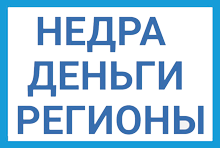Statement on the Presidential election RK 2019. Voting day.
10 June 2019
NGO Echo conducts long-term and short-term observation of the extraordinary presidential elections of the Republic of Kazakhstan 2019. Observation is conducted in all 14 regions of Kazakhstan, both in cities and villages, as well as in the cities of Almaty, Shymkent, Nur-Sultan.
On election day, 170 stationary observers came to the polling stations from the Echo partner network and also worked 62 mobile observers.
Observers were allowed on all polling stations. The problem arose only on one polling station, the observer was not registered until they checked the registration of the sending organization through the database of the Ministry of Justice. During the day, most observers had the opportunity to move around the polling station, to observe the voting process. At the same time, due to the restriction of access to personal data, observers did not have the opportunity to verify whether the voter is really voting at the place of registration.
The main problems connected with the voting day were as follows:
Poor quality of lists of voters. Formally, the law provides an opportunity for people to vote, but many observers reported multiple cases when voters did not find themselves on the lists. The problem particularly concerned internal migrants, in particular students. There was no voter information campaign with temporary registration. The introduction of a temporary registration in the Republic of Kazakhstan created a false impression among people that such registration allows to take part in voting at the place of actual residence. In many polling stations, such people were denied inclusion on the list on election day, but on some polling stations they were included. NGO "Echo" notes the lack of uniform application of the law.
Observers noted indirect signs of coercion to vote: arrival of large organized groups of students to the polling stations in the morning and throughout the day, many voters made selfies and said that they had to report on their participation in voting to the authorities. Such cases were recorded in Almaty and Nur-Sultan. In general, in Kazakhstan in 37% of cases, observers noted a large accumulation of voters in the polling station.
Insufficient knowledge of members of election commissions. Many observers noted the poor knowledge of the legislation among election commission members: the procedures, the rights of participants, their own responsibility. Members of the commissions in their work were guided by the instructions of the chairman and secretary of the commissions, and they, in turn, were guided by the methodological manuals and training videos issued by the CEC. At the same time, these materials leave much to be desired. A simple citation of the law in the materials did not provide an explanation of actions in disputable situations and an understanding by the members of the commissions of the significance of the procedures.
“I got the impression that the members of the commission did not know the procedures and did not understand their meaning,” said an observer at a polling station in Almaty.
Often, observers explained to members of the commission what was a violation and what should they do.
During the day of the voting, observers at 22% of the polling stations recorded and / or prevented cases of several ballots being thrown in by one voter, issuing ballots for a copy of an identity card, issuing ballots to unregistered voters, finding unauthorized persons at the polling station. At the same time, observers note that in 10% of cases, members of the commission refused to eliminate violations.
Members of election commissions do not understand the meaning of procedures aimed at transparency and as a result do not comply with them. This particularly affected the counting procedure of votes. A poor review of the counting procedures for observers was at 12.5% of the polling stations. Commission members did not show ballots to observers at 33% of polling stations. There was no announcement of the will on 20% of polling stations. The calculation was carried out simultaneously by several members of the commissions on 23% of the polling stations. In 45 cases, observers were refused to provide a certified copy of the protocol. 7 observers were removed from polling stations.
On several polling stations, members of the commission unjustifiably delayed the counting of votes, took breaks that were not provided for by the law. In some polling stations, the counting of votes began 4-6 hours after the end of the voting. Observers reported a blatant case where members of the commission interrupted the vote counting process and left the polling station, leaving all electoral documents, including ballots. The appeal of observers to the police did not give any result, it was impossible to get call the higher level Territorial Election Commission.
The day after the voting day, observers state that they could not find a copy of the protocol posted for public viewing in the polling station premises.
***
Processing of the observation results continues.
The final report will be submitted in July 2019.















